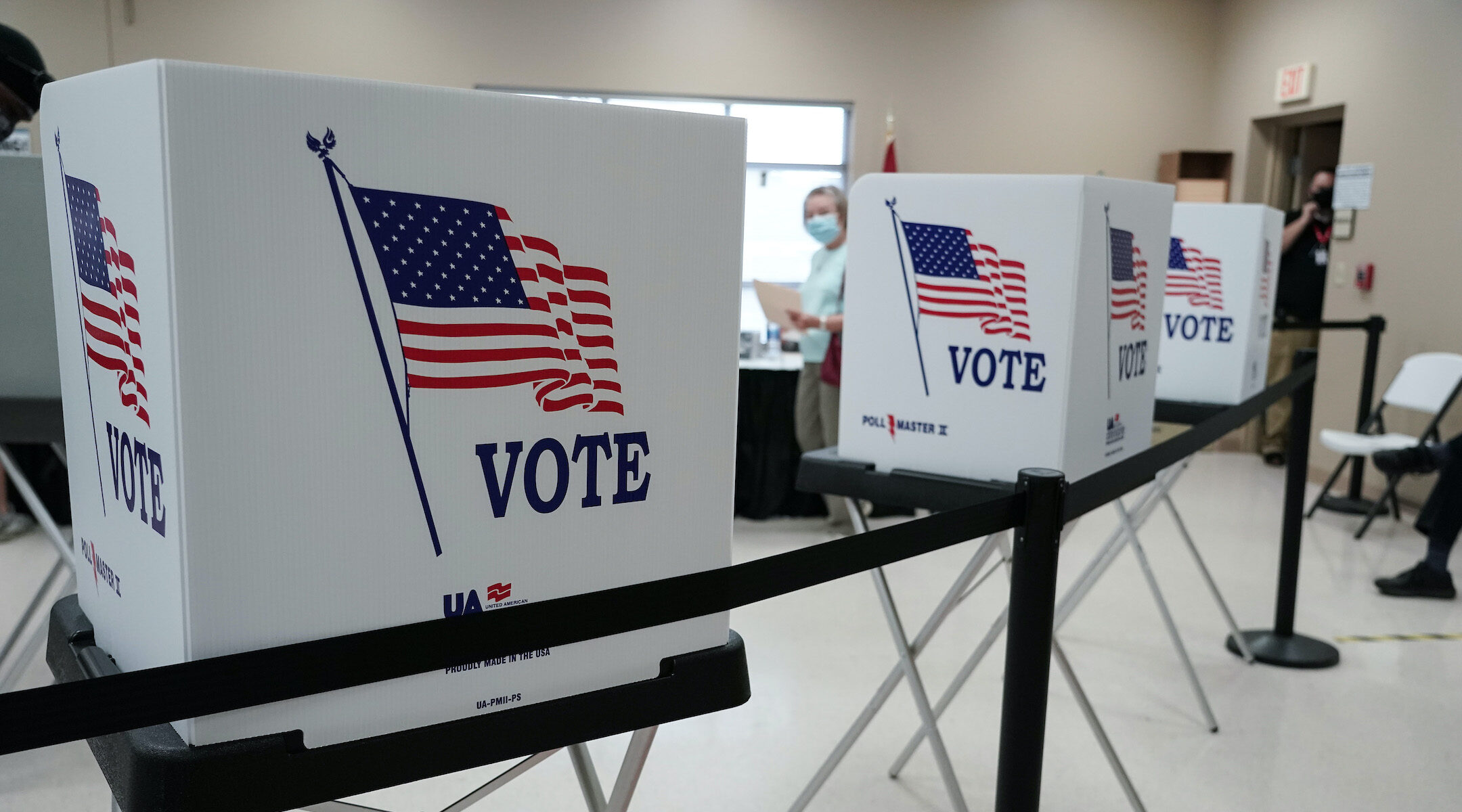One in five American Jewish adults are not currently registered to vote, according to a new study commissioned by the Synagogue Council of America.
While that is far smaller than the 50 percent of the overall American voting-age population that is not registered, it proves that the perception of nearly unanimous Jewish participation in the political process is a fallacy.
It also means that a significant segment of the adult Jewish population is not exercising its right to vote, which could make a substantial difference in the way the interests of the Jewish community are represented in Congress and the administration.
But the reasons that Jews have historically been “politically hyper-active” are fading in importance as Jews assimilate into the American mainstream, according to the study.
The less cohesive community that exists today makes for fewer opportunities to reach and motivate the Jewish rank and file, explained demographer Steven M. Cohen, who conducted the study.
“Jewish immigrants and their children gloried in the chance to vote. Voting was, for many, something akin to a religious rite — a sacred, meaningful and obligatory act,” he said.
“Whatever can be said about the meaning of voting for today’s Jews, it no longer has the magical, enchanted quality it once held for their parents and grandparents.”
The study estimates that 870,000 of the 4.3 million American Jews of voting age are not currently registered to vote. Cohen based that figure on data contained in the 1990 National Jewish Population Study, conducted by the Council of Jewish Federations.
In that study of 2,000 households nationwide with at least one Jew, 86.7 percent of the respondents said that they were registered to vote.
Another 2.3 percent of the respondents said they were registered, but not in the state in which they live, which means that they either have to obtain an absentee ballot or travel to the jurisdiction in which they are registered.
A ‘SWING VOTE’ IN PIVOTAL STATES
Taking into consideration the fact that 7 percent of white Americans typically say they are registered when, in fact, they are not, Cohen estimates that a maximum of 79.7 percent of voting-age Jews are registered.
The estimate is a conservative one, said Cohen, and the exact number of unregistered adult Jews could be as high as 1 million.
“In other words, of the 1,000 who may be worshipping at a particular synagogue for the High Holy Days, at least 150 are not registered to vote at all,” commented Rabbi Henry Michelman, executive vice president of the Synagogue Council.
“In addition, there may be another 100 who are registered but will be forced to cast an absentee ballot or return to where they last lived in order to enter the voting booth.”
While Jews make up only a tiny fraction of the electorate, they hold greater influence at the voting booth than their numbers would suggest.
That is because 90 percent of all Jews live in 13 states, and those states have a combined total of 272 electoral votes, said Irving Silverman, coordinator of the Synagogue Council’s voter registration project.
Half of the electoral college’s 540 votes, or 270, are needed to elect a president. “So in a sense, the Jewish vote can be seen as the swing vote in these states,” he said.
Silverman also pointed out that of 51 members of Congress who are not running for reelection, 44 have been “notably supportive of Jewish causes.
“To those people saying that they are displeased with the candidates for president, we are saying that there are other election issues you should be concerned about, too.”
The Synagogue Council voter registration project has set up a toll-free hotline to provide information and assistance on voter registration. The number is 800-927-7469.
Already-registered callers can volunteer to help others do the same.
The Synagogue Council, which represents Reform, Conservative and Orthodox Jews on domestic and interreligious matters of pan-denominational concern, also distributed a 28-page booklet to the 2,700 congregations it serves and more than 500 community relations councils and Jewish service organizations.
Through the booklet and the hotline, which gets 40 to 70 callers a week, hundreds of volunteers are organizing voter registration at their local congregations, senior citizen centers and nursing homes, said Silverman.
“If we are to restore the voting clout that we have always been expected to have, we have to go back to the days when we had 95 percent registered voters,” he said.
Among the Synagogue Council report’s other findings about Jewish patterns in registering to vote are these:
* Most non-registered Jews are under age 35. Jews in their 20s are three times as likely as those in their 60s to be non-registered.
* Among synagogue members, 15 percent are not registered. Among non-members, the figure reaches 23 percent.
* Orthodox Jews are slightly more likely not to be registered than their Conservative and Reform counterparts. About 18 percent of Orthodox congregants are not registered, compared to about 14 percent for the other two movements.
The Archive of the Jewish Telegraphic Agency includes articles published from 1923 to 2008. Archive stories reflect the journalistic standards and practices of the time they were published.




